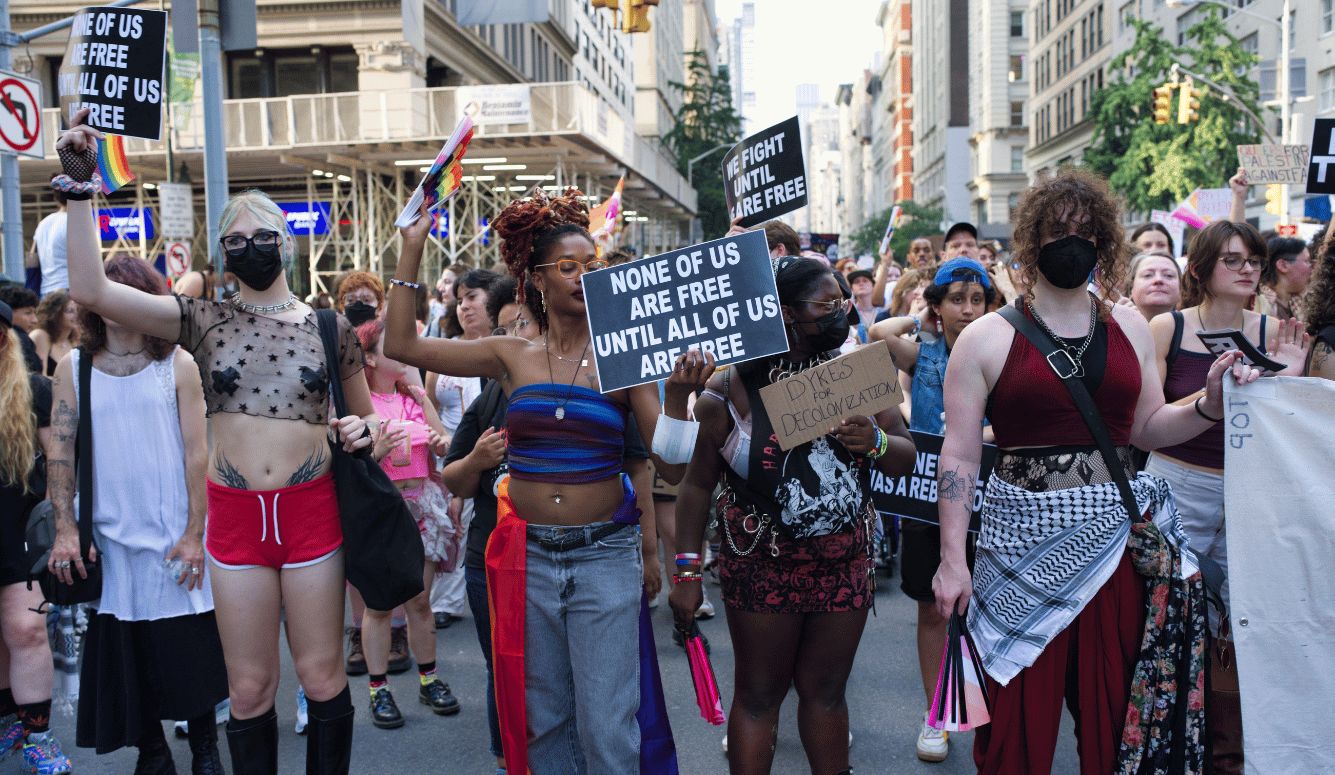Regressive Left
You Can't Build Walls Around a Culture
It’s progress. It’s the constantly expanding intellectual and social capacity that has led human civilization to every single one of its most mind-blowing achievements.

Cultural appropriation fanatics are operating under a fatal error — that culture belongs to anyone. Here’s the reality: it doesn’t. Just to be absolutely clear about that, your culture isn’t yours, and mine isn’t mine.
You can’t build walls around culture, because once an idea has been transmitted, whether willingly or not, it can no longer be restrained. It’s beyond ownership. It will be bounced around, split, mutate, crossbreed and reconfigure.
It will be appropriated, reappropriated, misappropriated, changed and then changed back, but different. After being cooked, flipped and reformed, it will unexpectedly give birth to something entirely new, to which the same process will occur, over and over again.
This is a part of the evolutionary process. It’s progress. It’s the constantly expanding intellectual and social capacity that has led human civilization to every single one of its most mind-blowing achievements.
The best music, the best literature, the greatest scientific, technological and political advancements — none have been achieved in a vacuum, all have been reached through a process of cross-pollination, co-operation and mixing. And also through disagreement — through challenge, rigorous debate, and mercilessly bruised and battered feelings.
All culture is accessible now. All knowledge is within reach. Everything we have is available to be remixed, rebooted, and reimagined.
Sometimes that might result in something bad, something worse than the original. Well, that’s just the way it goes, not every experiment works. But in order to achieve anything new, we have to be able to perform those experiments in the first place, and we must be able to do so whenever we want, spontaneously, and without anyone’s permission.
As in science, the cultural path, though littered with cast-off ideas and full of kinks, ascends inevitably toward new and exciting things.
Protesters against ‘cultural appropriation’ are wasting everyone’s time in an unwinnable battle: they’re attempting to deny nature, chill history, and shackle the basic components of what it is to be human.
They may as well lecture the trees not to grow because they’re stealing the sunlight.
The social justice luddites wish to freeze us in time, at this exact moment, apparently unaware of how artificial and arbitrary that would be. Why now? Our civilisations have spent thousands of years mutating and inter-breeding, what on Earth leads them to think that this is the moment of cultural purity at which we must all stop following our social instincts and instead reside forever in splendid (disastrous) cultural isolation? Why, for example, designate dreadlocks as black? Shouldn’t we assign them to the Ancient Egyptians or the Scandinavians, who wore them thousands of years ago? And who is to take charge of assigning everything in existence to a specific ethnic category? Nineteen year old gender studies students?
Taking offense on other people’s behalf is staggeringly patronizing. To arrogantly declare, for example, that non-Japanese mustn’t wear kimono for fear of causing offense, forces Japanese people into an unwanted victim role, attempts to rope off a beautiful culture, and implies that they lack emotional robustness and require protection.
The self-appointed, jobsworth offense-seekers treat those they’ve unthinkingly labeled as ‘oppressed’ like children, forcing them into the psychopathic nanny’s smothering bosom in an act of control masquerading as comfort.

And it is a way of controlling people. Assign them an identity, and make sure they stay within its bounds. The idea that this is for their own protection is a profound dishonesty. The snotty, tearful snowflakes might be weak and easily offended, incapable of dealing with hurt feelings or harsh words, but most people aren’t, and don’t need such fake protection. A word in your ear, SJWs: you’re not society’s mentally deranged, over-protective mum.
Living in Tokyo, I’ve appropriated some knowledge. Anyone who lives in an earthquake zone and has wondered which buildings would survive a big quake probably knows this too: strength comes through flexibility. Rigidity is weak. As with architecture, the same is true of ideas. It’s the cultures which are adaptable, generous, and open to the exchange of ideas that thrive. Those that define themselves by exclusivity and self-imposed blockades are likely to end up left behind. Japan, as it happens, has tried both ways.
Seven years ago, the BNP — a far right wing party in the UK — had a surge in popularity. This came to an end soon after its leader appeared on the BBC’s political discussion programme Question Time. His toxic extremism was exposed. His fixation on ethnic origin was sinister and without value.
The race obsessed new segregationists of the millennial social justice movement are strongly reminiscent of that former leader of the BNP.
And perhaps that indicates why they’re opposed to free speech and constantly push for the censorship of their opponents. Their leaders seem aware that if exposed to the cleansing light of open discussion, their ideologies would be revealed as regressive, irrational, and potentially dangerous.






